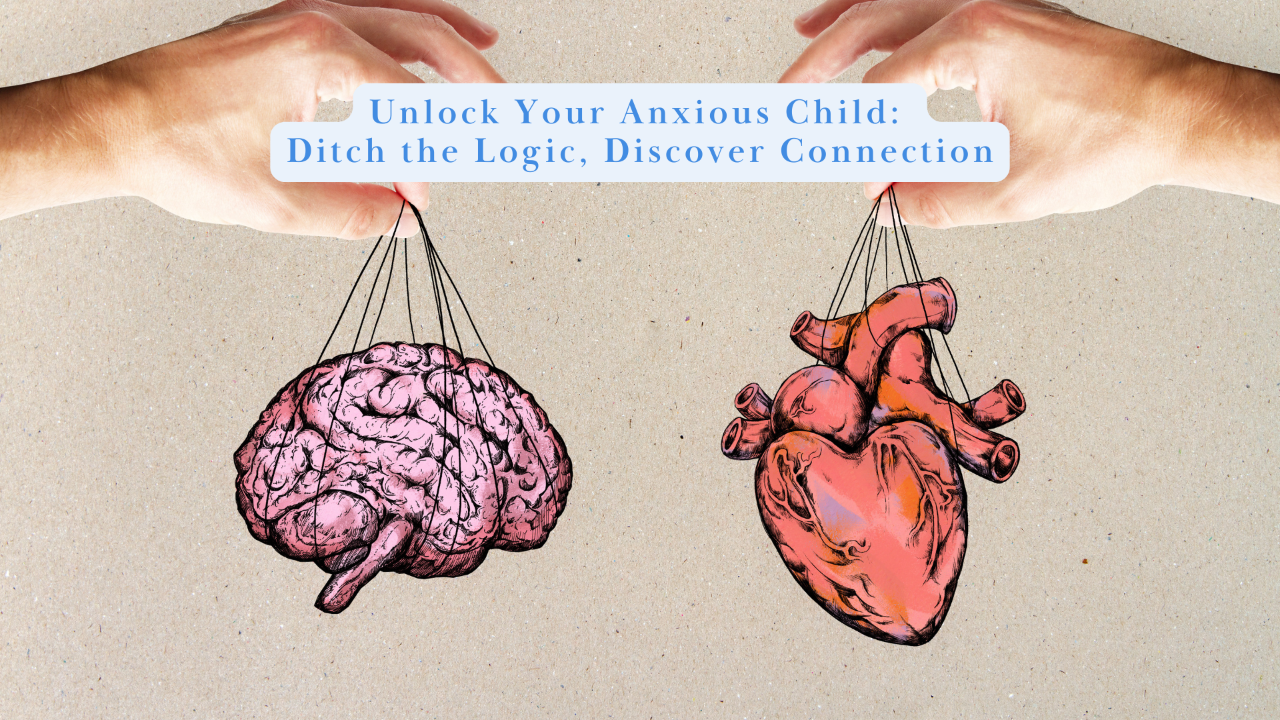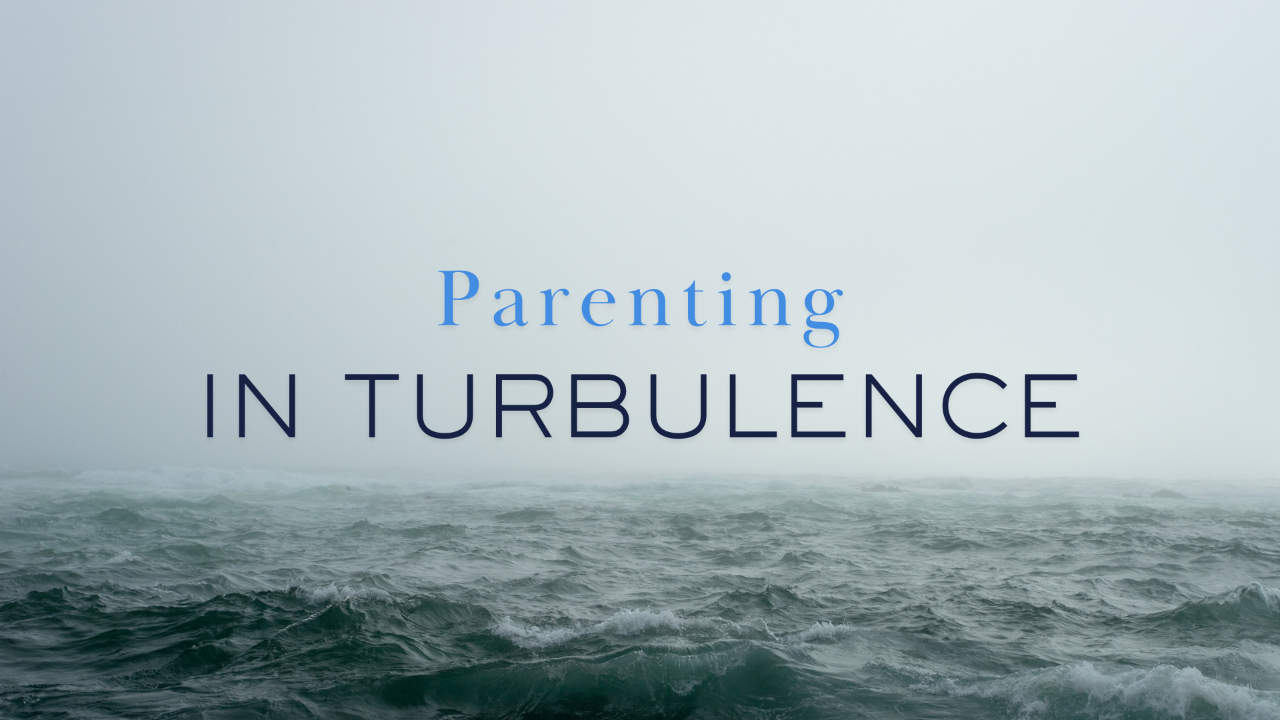Anxiety, Parenting, and What Actually Helps
Real world reflections from the clinic, the home, and everywhere in between
The Logic Trap: Why Your Anxious Child Isn't Hearing You (and What Actually Helps)

"I've gone over this countless times. Why the disconnect?"
That feeling of hitting a wall when your anxious child seems impervious to reason – especially when distress peaks – is a shared experience. It’s a frequent topic in my work with families. But the issue isn't a refusal to understand; it's that logic simply isn't the right tool for their brain in that moment.
Let's examine the underlying mechanism.
▍Stress Overrides Rational Thought
When a child is anxious – whether withdrawing or experiencing an emotional surge – their capacity for higher-level thinking (governed by the prefrontal cortex) temporarily diminishes. The emotional center of the brain (amygdala) takes precedence. This isn't a willful act; it's a fundamental neurological shift.
Attempting to explain "it's not a big deal" or "you already know this isn't frightening" at this point is akin to offering complex instructions to someone in immediate danger. It's not what they require.
▍First Priority: Establishing Secu...
When Connection Feels Impossible: Parenting Through the Disconnection

There are moments in parenting—especially if you’re raising an anxious, sensitive, or neurodivergent child—when it feels like all your efforts are bouncing off a brick wall. You reach out. You soften your voice. You try all the things. And still, your child stares through you like a barista who's already called your name three times.
They’re unreachable.
It’s like trying to hug a cactus that’s been set on fire.
Naturally, you start to wonder:
Am I doing something wrong?
Have I broken them?
Have they broken me?
You’re not broken. Neither are they. You’re just in the thick of it. And this—this disconnection—is part of the terrain.
What Disconnection Feels Like (and Why It Hurts So Much)
Disconnection in parenting is not just frustrating—it’s deeply disorienting. We’re wired to seek emotional resonance, especially with our children. When that resonance is missing, it can feel like failure. But here’s the truth: children aren’t always able to meet us halfway. Especially when they’re ...
You Can’t Fix Your Anxious Child — And That’s Not Your Job

There’s a quiet sort of panic I hear often from parents — especially those raising sensitive, intense, or anxious children.
They’ve tried explaining. Comforting. Distracting. Solving.
And still — the meltdowns, the tension, the fear — they keep coming.
The parent begins to wonder: “Why isn’t this working? Am I doing something wrong?”
Here’s what I often say gently in response:
You’re not doing it wrong.
You’re trying to fix something that doesn’t need fixing.
Let’s be clear — anxiety can be distressing. For your child. For you.
But it’s not a broken part. It’s not something to remove.
It’s something to understand.
▍Anxiety isn’t a flaw to correct
Anxious behaviour is often the surface expression of an overloaded nervous system. Your child might not have the words for what’s happening — so it spills out through avoidance, outbursts, shutdowns, or spirals.
When we respond by rushing to calm them down — even with the best intentions — the message that sometimes lands is:
This emot...
How to Inoculate Kids Against Sociopathy — With Empathy

Let me start with an uncomfortable truth. Children don’t become adults with sociopathy overnight. It is not something that simply “happens.” It is shaped gradually—often quietly—through repeated emotional disconnection, unmet relational needs, and a lack of consistent adult guidance.
To be clear:
We do not diagnose sociopathy in children.
The clinical term, Antisocial Personality Disorder, is reserved for adults. However, in my work as a youth forensic psychiatrist, I do encounter early behavioural patterns that raise concern—such as cruelty to others, chronic lying, or apparent indifference to consequence. But these signs don’t automatically mean a child is on the path to becoming sociopathic.
And this is an important distinction.
▍Every Child Experiments with Self-Centredness
We all carry some degree of self-interest and emotional short-sightedness. In childhood, that’s not sociopathy—it’s developmentally normal.
Children are still learning what empathy feels like, what it req...
Is Your Child's 'Little Worry' Destroying Their Future?

Is Your Kid a Bit Worried? Is it more than Just a Phase? Do you care?
It's not always easy to know what's normal kid-stuff and what's something a little more, like anxiety.
Parents, can be caught in a bind: wanting to fix it, hoping it'll just go away, or simply feeling lost about what to do when we've already got so much to do.
We're all trying to balance work, family, and our own well-being. Throw in hobbies, social lives, and the general chaos of family life, and it's easy for a child's worries to sometimes slip under the radar. Perhaps we allow ourselves to succumb to the allure of complacency. But the problem of course is then that ignoring it won't make it disappear. In fact, it can often make things worse.
Anxiety manifests in a whole host of ways. Think beyond the obvious nervousness. Are there unexplained aches and pains – recurring tummy aches or headaches? Have you noticed changes in their behaviour – more irritable, withdrawn, or clingy than usual? Are they struggli...
This Parenting Hack Will Change Your Life. Especially During Meltdowns

I recently shared a short, light-hearted video on Instagram (do have a look if you're interested!), and it got me thinking about something we all experience as parents: meltdowns.
Those moments when our children are overwhelmed, emotions are running riot, and it feels like we're navigating a force ten gale. It's tough for everyone involved.
In the video, I don my goggles and swimming cap and then..... It's a bit of fun, but it's also a visual reminder of how we can sometimes feel during these intense moments – like we're being pulled under by the chaos. But here's the thing: just as panicking in a real storm makes things worse, the same is true for emotional storms.
What I want to explore here is the importance of staying grounded during your child's meltdown. Of course, this is often easier said than done. Our own emotions can easily become entangled in the whirlwind, particularly when we're already feeling depleted or under pressure. However, and this is crucial, our children le
...🤯 2024 Broke Me... But THIS Unexpected Strategy Saved My Family (and My Sanity!) 🤯

Navigating the Undercurrents: Parenting Through the Turbulence of 2024
2024 was a year that tested me. The relentless bombings from my work life coupled with the ever-present demands of family, often left me feeling adrift in a sea of exhaustion. There were days when the weight of it all threatened to pull me under.
But parenting (or perhaps my children?), it seems, was a life vest that refuses to let go - it just took me a while to figure out that they were more of a life vest than a weight in 2024. Even when my own strength faltered, the needs of my children kept me afloat. And in the struggle to stay above water, I discovered a deeper understanding of resilience – not as a triumphant return to shore, but as a relentless navigation of the undercurrents.
Resilience wasn't about erasing the impact of the storm; it was about charting a new course through the choppy waters. It was about making deliberate choices, even when my inner compass spun wildly.
Intentionality as an Anchor
...The Threat Telescope: Understanding Your Child's Anxiety in the New Year

As we step into 2025, many of us are reflecting on how to better support the anxious children in our lives. One concept I find particularly helpful is what I call the "Threat Telescope."
Imagine your child is holding a telescope backwards. Just as this makes distant objects appear smaller, anxiety does the opposite – it magnifies potential threats while shrinking the view of resources, support, and coping abilities. Through this threat telescope:
- A class presentation becomes a guaranteed humiliation
- A playdate morphs into a minefield of social rejection
- A maths test transforms into a measure of their entire worth
- A new situation appears impossibly overwhelming
But here's what's crucial to understand: Each child's threat telescope is uniquely calibrated. Some children might find social situations particularly magnified, while others might zoom in on academic challenges or changes in routine. This is why a one-size-fits-all approach to anxiety support often falls short.
Su...
Meltdown Mastery: The Ultimate Guide to Navigating Emotional Storms with Ease (or less difficulty)

In the latest episode of the Huddle Wisdom Podcast, I tackle the overwhelming feelings many of us face when helping children or patients during a meltdown, or when coaching another adult or caregiver through similar situations.
Often, I'm asked what the solution is for handling meltdowns. If you're asking that question in the heat of the moment, it's probably too late. Addressing a meltdown with the sole goal of stopping it is rarely effective. A meltdown is a natural consequence of a buildup of tensions, frictions, and breakages that occurred beforehand. To truly 'prevent' a meltdown, you need to start early and also spend time afterwards critically analysing the factors that led to it, including the triggers, perpetuators, and quellers. I cover these topics in Episodes 114 and 115 of the Huddle Wisdom Podcast:
- [EP114](https://www.huddlewisdom.com/podcasts/the-huddle-wisdom-podcast/episodes/2148896669)
- [EP115](https://www.huddlewisdom.com/podcasts/the-huddle-wisdom-podcast/episo...
Why Our Mental Health System is Failing Us: A vision for radical change

Our mental health system isn't just inadequate—it's fundamentally misaligned with human needs. While experts debate funding, protocols and guidelines, a generation is struggling with unprecedented mental health challenges. It's time to speak an uncomfortable truth: the current system needs more than reform. It needs a complete reimagining.
Beyond the Status Quo: Challenging Comfortable Assumptions
Traditional psychiatry has devolved into a system that prioritises standardisation over healing. Practitioners find themselves constrained by guidelines that have become rigid barriers to genuine care. Many recognise these limitations but feel powerless to create change, caught between their desire to truly help and the system's demands for conformity.
The real tragedy? This isn't news to those inside the system. Many practitioners see these failures daily but feel unable to spark meaningful change. They're forced to choose between their professional standing and their deepest insights ...

